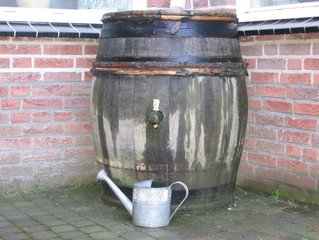Small Household Changes to Match New Jersey’s Big Ambitions for Renewable Energy
March 28, 2019
New Jersey, already one of only five states requiring 50% renewable energy by 2030, has even greater ambitions to achieve 100% clean energy by 2050. Seeing such commitment from governing bodies can be particularly inspiring for residents. In addition to encouraging them to take their own small steps to harness renewable power, this type of commitment to renewable energy can also inspire residents to reduce their energy bills and conserve water on on their property.
Sharing Solar Energy
Although solar power can offset energy costs and contribute to reducing a home’s environmental impact, for some homes installing solar panels isn’t always practical or economically viable. However, in New Jersey, these households won’t need to miss out on the benefits of energy from the sun. Instead, “community solar” projects, proposed by state regulators, will allow residents to share solar energy produced by installations in other areas of the State. Even without panels, any resident can take steps to harness solar energy. Solar lights can be easily installed anywhere around the garden, not only making it brighter, but also safer and more comfortable, without incurring any running costs.
Saving Waste Water
Last summer, New Jersey American Water were obliged to ask customers in certain counties to conserve water, as temperatures rose to over 90℉. As well turning off faucets promptly and only running full loads in the dishwasher and washing machine, reducing outdoor watering and cleaning can have a huge impact on water usage. To help maintain a healthy garden, during the summer months households can save 1,300 gallons of water by installing a rain barrel in the garden. This will also retain storm water which might otherwise run along the street picking up pollutants, before flowing flowing into rivers and streams.

Reducing Energy Bills
Another simple way to reduce storm water runoff, and save on energy bills, is to plant more trees. A large tree can absorb up to 100 gallons of water a day and, in addition to making a garden or neighborhood more attractive, trees also help improve air quality. A scheme in New Jersey is giving away free trees to residents through the Arbor Day Foundation’s Energy-Saving Trees program. So, there is no excuse for any residents who like the idea of reducing air conditioning costs by 35% to not plant a tree in their garden in order to provide shade in the summer.
The ambitions of New Jersey are encouraging to residents and, by making their own small changes towards a sustainable household, the likelihood of reaching the goal of 100% clean energy in the future seems highly probable.
